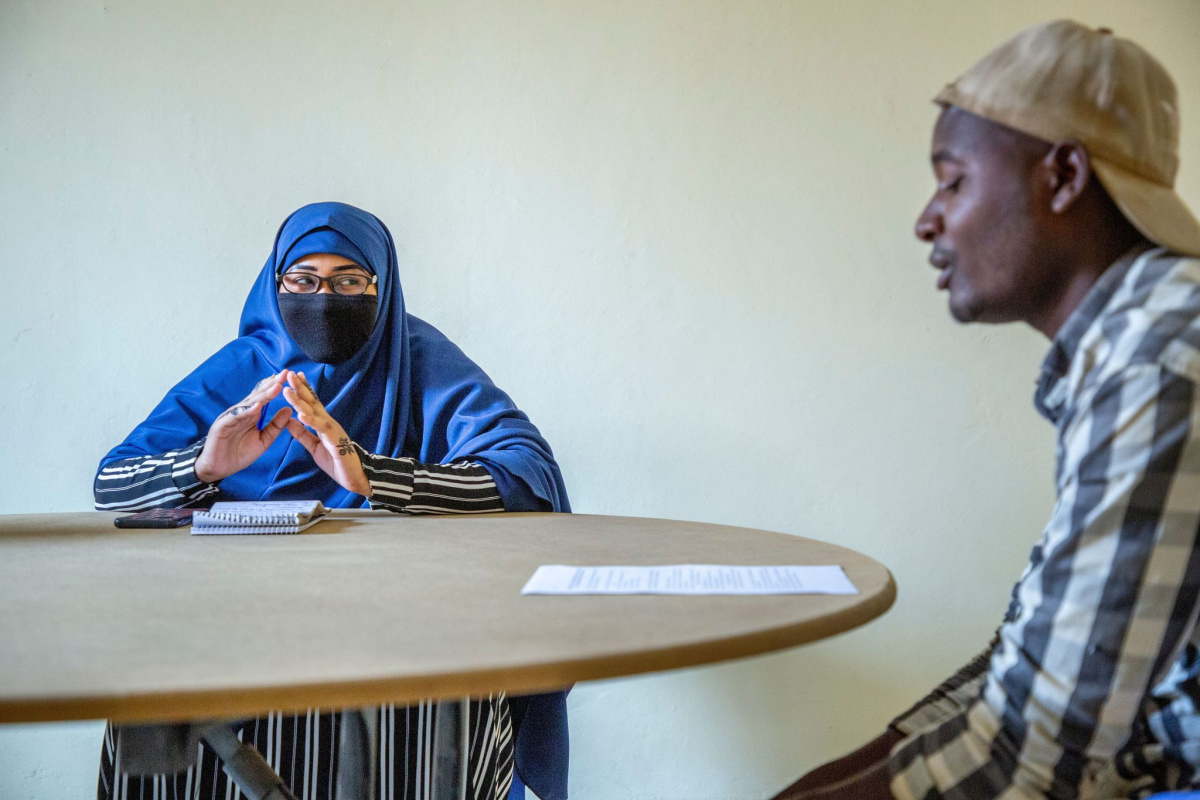
Nasteho, a single mother in Somalia, tried to stop her former husband from marrying off their 18-year-old daughter, Aisha. Nasteho’s ex-husband, who had abandoned his family when Aisha was a baby, suddenly turned up with the news that he had accepted a dowry payment and promised Aisha to a man he knew. Aisha’s father eventually absconded with the money, and the presumed husband was not willing to relinquish his claim to the marriage.
“I was desperate as I did not want to give [up] my daughter, but at the same time I had no resources to pay back the dowry,” said Nasteho. “My ex-husband had left with the money.”
After consulting with the village elders without success, Nasteho and the man seeking to marry Aisha decided to bring the case to an Alternative Dispute Resolution (ADR) Centre run by IDLO partners in the city of Beledweyne in Somalia’s Hiran region. It is one of 15 such centres across Somalia that in 2022 received a total of 2,988 cases. Women constituted 50 per cent of the justice seekers.
The centres use community-run customary and informal justice (CIJ) mechanisms to resolve civil disputes and minor offences through a panel of selected adjudicators. They apply Somali statutory law, Somali customary law (xeer) and Islamic law (sharia) while referring more complex or criminal cases to formal courts.
Paralegals from the community provide legal information and assistance, especially to women, who often struggle to access justice that is fair and impartial. The centres support adjudicators to ensure that decisions are aligned with the Constitution and international human rights standards.
Justice seekers have found the centres reliable, inclusive, fair, legitimate, transparent and culturally responsive in addressing disputes over land, family and business matters and other issues. A recent IDLO assessment shows that 93 per cent of users felt justice had improved in their community since an ADR Centre opened.
In Nasteho’s case, the centre recognized her right to refuse her daughter’s marriage while acknowledging that the ‘husband-to-be’ had to be reimbursed for the dowry he had already paid to Aisha’s father. Ultimately, the centre’s adjudicators conducted a community-wide fundraiser to refund him, sparing Nasteho this burden.
“Beledweyne’s ADR Centre is full of people who are not only fair but also kind. They listened and understood both sides and made a decision that saved the life of my daughter,” said Nasteho.
IDLO also supports four ADR Centres in the cities of Burao, Erigavo, Hargeisa and Las-Anod. Each centre provides free referrals and a toll-free hotline where trained lawyers and paralegals give legal advice. The centres also offer outreach services, including regular visits to camps of internally displaced people (IDPs), and legal awareness sessions for vulnerable and marginalized communities.
Faduma, a mother of four living on the outskirts of the city of Burao, the capital of the Togdheer region, contacted her local centre’s hotline for advice on a land ownership dispute. She learned about the centre after hearing a public service announcement on the radio.
“I felt powerless as I didn’t have the money to hire a lawyer to provide me with guidance,” she said “But when I heard about this free justice service, I called in to check … and was given valuable information. Now, I am confident about how I should go about seeking legal redress.”
In 2022, the four centres together examined 1,218 cases, more than 70 per cent of which were brought by women. The hotlines provided free legal advice and information to 1,528 callers. By scaling up pro-bono legal services, the centres extend a lifeline to vulnerable people and communities.

